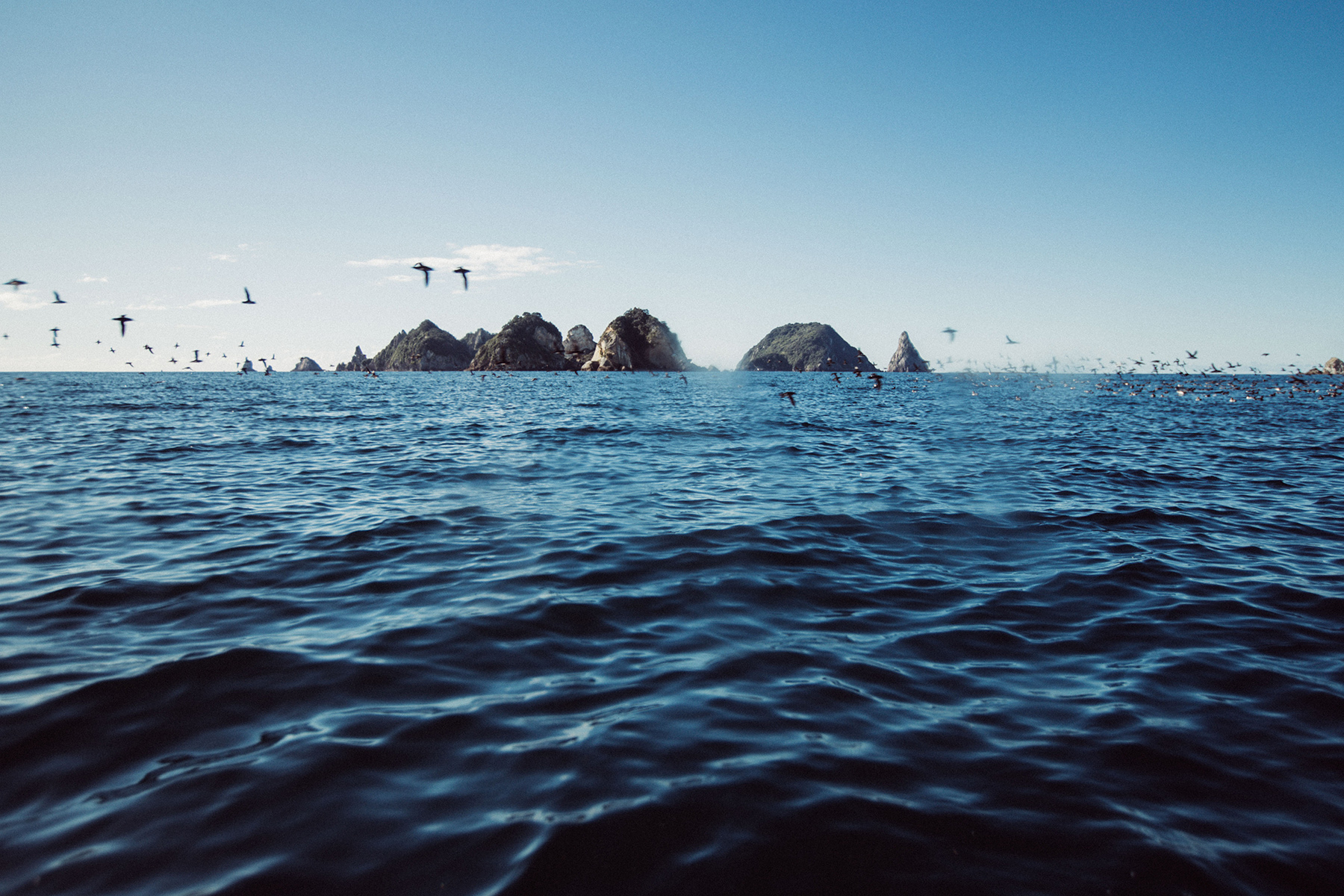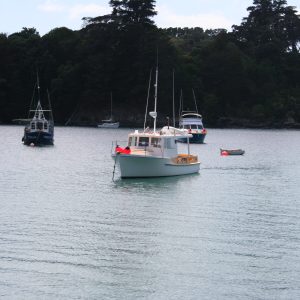As we approach yet another Black Friday, a day consumed by the noise of commerce and the allure of fleeting bargains, there lies a darker shadow that we cannot afford to ignore. This is not the shadow cast by towering stacks of discounted goods but a profound and pervasive darkness seeping into the very foundation of New Zealand’s identity and rotting away the health and integrity of one of our greatest assets – our oceans and the life that dwells within.
Beneath the gleaming surface of our wild coastal waters, a silent crisis unfolds. The Quota Management System (QMS), once touted as a revolutionary approach to sustainable fishing, has become the bedrock of ecological decline and social inequity. It is the black rot at the heart of our fisheries, undermining the vitality of marine ecosystems and the communities that depend upon them.
When the QMS was introduced in 1986 it came with private property rights. Those property rights were heralded as a forward-thinking solution to overfishing – a means to ensure fish stocks were harvested responsibly, balancing economic interests with environmental stewardship. Yet, over the decades, this quota system has warped and twisted into something unrecognisable from its original intent. It has evolved into an industrial machine that prioritises corporate profit over ecological sustainability and social justice.
Imagine the ocean floor, once vibrant with life, now marred by the scars of relentless bottom trawling and dredging – practices akin to clear-cutting forests, only beneath the waves. Entire habitats razed in moments, the intricate tapestry of marine life torn apart for the sake of short-term gains – a net full of target fish alongside whatever happens to get dragged up in the process. Species that were once abundant are now dwindling, their populations unable to withstand the pressure of intense, unrelenting extraction.
At the heart of this destructive trajectory lies the commodification of what should be a shared resource. Quotas, the linchpin of the QMS, have consolidated into the hands of a few large entities or individuals. These corporations, driven by the imperative to maximise profits, wield disproportionate influence over the management of our fisheries. Small-scale fishers, the very soul of our coastal communities, find themselves edged out – struggling against a tide of policies and market forces favouring the industrial-scale extraction of marine resources.
The opacity of quota allocations exacerbates this inequity. Transactions occur with little public oversight, shrouded in a veil of confidentiality that hinders accountability. Without transparency, it becomes nearly impossible to assess the true impact of fishing activities on fish stocks and marine ecosystems. The very system designed to prevent overfishing instead facilitates a form of legalised over-exploitation.
The endless amounts of bycatch remain a grim testament to the system’s failings. Non-target species – dolphins, seals, seabirds, and a multitude of other marine creatures – are inadvertently ensnared and discarded, their lifeless bodies slipping back into the depths unnoticed and rarely recorded unless a fisheries observer or camera is onboard. This collateral damage is a stark indicator of a management approach that fails to account for the complex intertwining of ocean life.
And the human cost is equally devastating. For Māori communities, whose cultural and spiritual ties to the ocean span centuries, the QMS has often marginalised traditional practices and knowledge. The erosion of customary fishing rights undermines not only livelihoods but also the transmission of traditional practices to future generations. Coastal towns, once thriving hubs of fishing activity, grapple with economic decline as local fishers are forced out of the industry.
This Black Friday, we need to confront the uncomfortable truth that the QMS, in its current incarnation, is a system that perpetuates environmental degradation and social injustice. It is a construct that enables the over-extraction of resources while insulating the perpetrators from the consequences of their actions. The imbalance of power and profit is stark, with the money ending up in the pockets of a select few while the costs – ecological collapse, loss of biodiversity, and community disintegration – are borne by the many now, and future generations.
Why, then, does this continue when the scientific warnings are so unambiguous? Our oceans are under immense stress from overfishing, climate change, and pollution. The additional strain imposed by an ineffective Quota Management System pushes marine ecosystems toward tipping points from which recovery may be unachievable. The decline of key species can trigger cascading effects, disrupting food webs and undermining the overall health of the ocean.
Yet, amid this bleak landscape, there is a glimmer of hope. Recognising the failures of the QMS is the first critical step toward meaningful change. We have the opportunity – and the obligation – to fundamentally reform our approach to fisheries management. This begins with embracing transparency at all levels. Quota allocations, fishing activities, and the impacts on fish stocks and bycatch must be openly reported and scrutinised. Only through transparency can we rebuild trust and ensure that management decisions are based on sound science and the public interest.
Redistributing quotas to support small-scale and indigenous fishers is essential. These communities have a vested interest in the long-term sustainability of marine resources. Empowering them can lead to more responsible fishing practices that align with ecological preservation and biodiversity gains. Additionally, integrating traditional knowledge with scientific research can enhance our understanding of marine ecosystems and improve management outcomes.
Implementing stringent protections for critical habitats is non-negotiable. Destructive fishing methods that cause irreparable harm to the ocean floor and non-target species must banned outright. Ecosystem-based management approaches including our Rescue Fish initiative, which considers the cumulative impacts of human activities, need to replace the narrow focus on single-species management.
We must also address the socio-economic dimensions of fisheries management. As a start, we need to develop policies that aim to distribute benefits more equitably, supporting community development and resilience. Investing in sustainable fishing practices and alternative livelihoods can help mitigate the economic impacts on those affected by necessary regulatory changes.
Time is of the essence. The longer we delay, the more entrenched the problems become, and the more difficult they will be to reverse. This is not merely an environmental issue – it is a matter that strikes at the heart of who we are as a nation. Our identity is inextricably linked to the ocean that surrounds us. To continue to allow its degradation is to forsake a fundamental part of ourselves.
So, as we navigate the noise of Black Friday, let us not lose sight of the deeper values that bind us. Let us direct the same energy and urgency that drives consumer behaviour into something more positive – a collective effort to safeguard our oceans. The challenges are immense, but so too is our capacity for innovation, compassion, and stewardship.
The black rot of the Quota Management System can be excised, but it requires decisive action and a willingness to confront uncomfortable truths. It demands that we hold ourselves and others accountable, that we prioritise the common good over individual gain, and that we embrace a vision of prosperity that is sustainable and inclusive.
In doing so, we not only protect the rich tapestry of life beneath the waves but also honour the legacy we wish to leave for future generations. The ocean has given us so much – now is the time for us to give back, to heal the wounds inflicted upon it, and to ensure that its wonders endure long into the future.
Relevant Links





